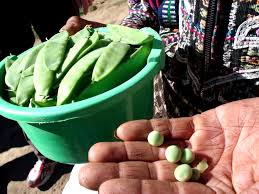Preparation and water content determination of a sample
A sample is a minute substance taken from larger one and to be analysed using different methods or machines .The sample can also called analyte . Water is a universal solvent that is capable of dissolving organic or inorganic solute in a sample. Also water is capable of providing a conducive environment for microorganism to grow if present in a sample.

sample
Identification and location of sample
Firstly is to know the sample you want to work with in the laboratory then identify where to get sample and when to get it. For example if the sample can be got during raining season or dry season that its may be the sample is seasonal or not. After taking the sample to the laboratory, it is now depend on the type of sample we are to work with that will determine the kind of treatment to be given to it. For example sample may be leaves, root, stem, fruit, seed, food and animal e.t.c.
How to prepare laboratory sample
After the sample has been gotten and selected. The sample will be measured to know the weight and is labelled W1 . Then the sample can now be air dry , sun dry or oven dry. Air dry can be done by using room temperature to dry the sample and this method can only apply for plant parts (such as leaves, root, stem,seed and back).Air dry can about two weeks or more before a constant weight can be attained. Sun dry is the process of using sun light to dry off the water content in a sample . This can also be applied for plant parts and animal. Oven dry is a modern way of drying sample without change in temperature (i.e the temperature can be regulated) and is an electric machine which can provide accurate result because there would not be any external disturbance such as goat, lizard, flies in the case of sun dry and air dry. Oven can work this way , put the sample in an oven at 60 degree cengree for 72 hours but the sample must be reweight at the interval of 12 hours. The sample should be removed from the oven and put in a desiccator to cool down before reweighing then return it back to the oven until constant weight is attained which should be labelled W2. W2 will be subtracted from W1 which is initial weight
W2-W1= W
which means W is the water content of the sample.

oven
The sample can now be grinded to a powder form so as to increase the surface area of the sample which can allow beter reaction to occur in further analysis.